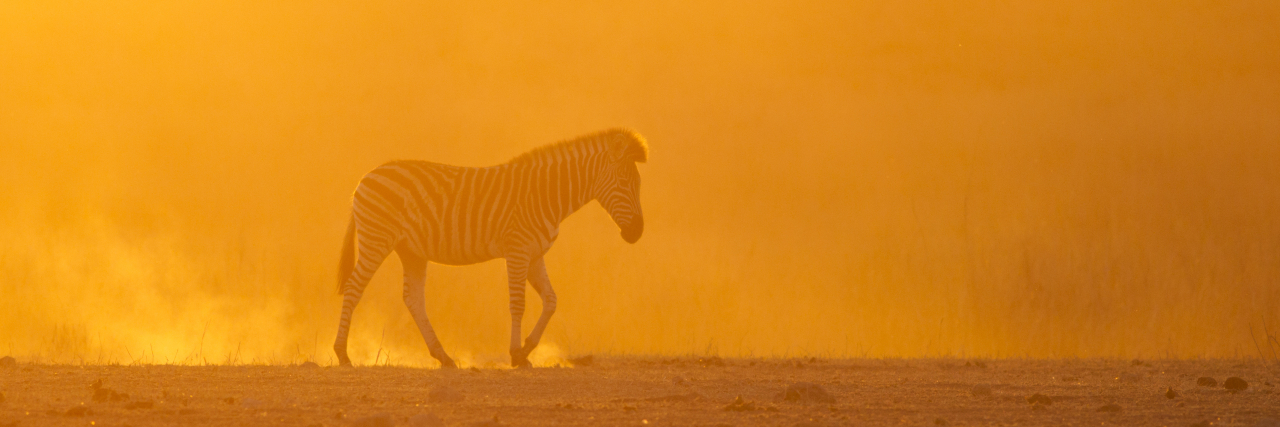What I Didn't Expect After My Common Variable Immune Deficiency Diagnosis
I’m a people pleaser. I always have been. It’s just who I am. So, when I was diagnosed with an incurable illness at the age of 40, I became faced with something I had never considered. My illness, apparently, was going to upset people in a way that I didn’t know existed. I assumed when people got sick, their friends and loved ones gathered around them to show support. I was wrong.
My family has always been fairly close, so when I finally revealed my diagnosis to them a couple of years later, I pictured cards coming in the mail, phone calls and texts of support, and so on. But what I got was mainly… silence. You see, I was diagnosed with a rare disease called CVID (common variable immune deficiency). No one had ever heard of it. Many doctors had never heard of it. I was told that one in 50,000 people have it.
Instead of support, I found myself first dealing with something almost like disbelief. It was almost like I needed to prove that I was sick. If they did ask about me or my illness, they asked probing questions. I was dumbfounded. These were people I’d known my whole life. People who knew my history of near-constant sinus infections, chronic bronchitis, pneumonia, and ear infections. Yet when I was finally diagnosed with a disease that explained all of this, people seemed almost suspicious. I did not understand this reaction at all, and basically just shut down. From that point on, I only spoke of it when specifically asked about it. Friends and co-workers seemed more concerned than beloved family members.
The Immune Deficiency Foundation (IDF) provides a lot of support through online and print resources. It also hosts a fundraising walk each year. All of the profits go to fund research about immune deficiencies. I decided to have a team one year, and I put out the information to family and friends. I was really surprised by two things. The first was by how many of my friends and former co-workers signed up and helped fundraise. Because of this, we were by far the largest team in attendance at the Atlanta walk that year, and we also placed third in fundraising. I was so thrilled to know that those funds would go to support research for those with primary immunodeficiencies. But the second thing I was surprised about is that besides my immediate family, which includes my wonderful husband, Steven, and boys Andrew and AJ, not one of my family members came to the walk. Not one. My parents, brother, and niece walked “virtually,” and I felt like that was because it was posted on social media and they felt bad, like they had to do it. It was embarrassing how many of my friends asked where my family members were. I just had to come up with vague excuses for why none of my family attended.
Many of my family members lived within a fairly easy driving distance. I had cousins, aunts, uncles, siblings, etc., that did not attend, join the team, or donate. My brother thrives on running races and attending walks. But he didn’t come to mine. Even my across-the-street neighbor donated, but not my many well-to-do family members. I cannot convey the hurt that caused me. I felt confused, unimportant, and somewhat abandoned. A beloved aunt, who has been there for me several times through this, joined a team to support a former co-worker’s sick child in another walk. But not mine. Why? Did I do something wrong just by getting sick? Was it because I did not have one of the “known” illnesses to support, like cancer, Alzheimer’s, or autism? I guess I’ll never know. I won’t ask. Part of me doesn’t want to know the answer.
As I said before, I’m a people pleaser. It is so bizarre for me to realize that one of the only things I’ve done to actively displease those close to me is something I had absolutely no control over; I got sick. People, I have come to believe, do not want to be faced with mortality. I suppose when they look at me, that’s what they see. My illness makes them sad, so it’s easier to stay away than to face or acknowledge it. I feel like I understand the reaction better now, six years after my diagnosis. I’ve read multiple articles and books about chronically ill people who have gone through the same thing. That doesn’t make it a whole lot easier to accept, though. It doesn’t take away the pain of feeling like I have done something to greatly displease those I love. I got sick, and I can’t fix it.
Getty image by Rugco.

